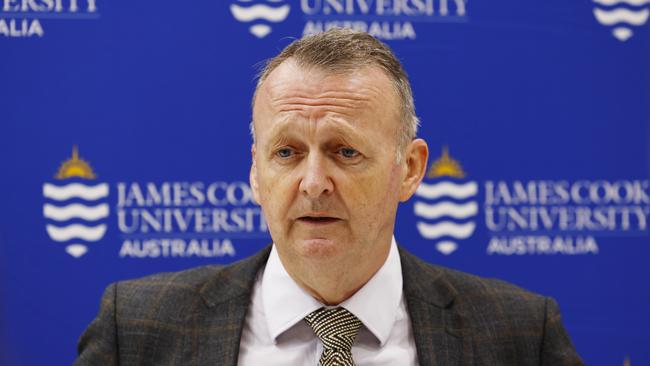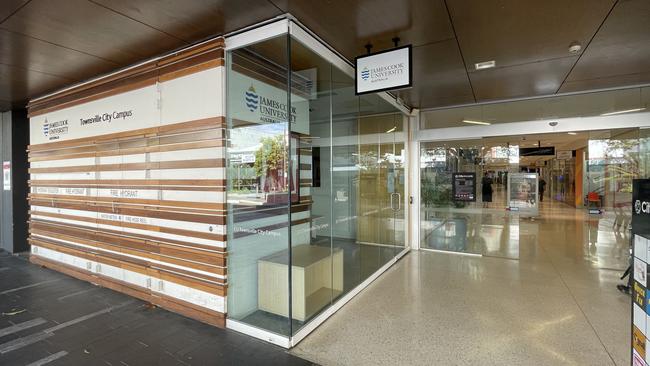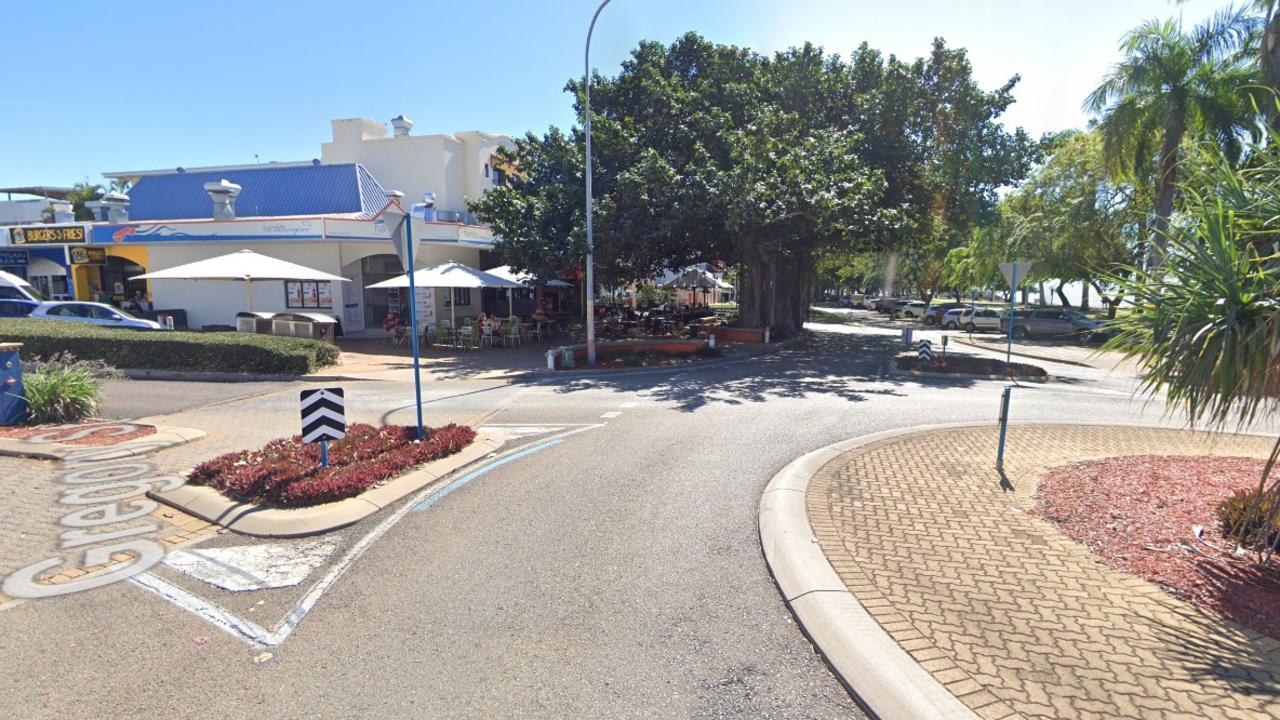JCU closes CBD campus, says visa cap could have “significant impact”
JCU is officially closing its CBD campus on Flinders St to save money, and is bracing for a “significant, negative impact” if an international student cap is passed by the senate.

Townsville
Don't miss out on the headlines from Townsville. Followed categories will be added to My News.
James Cook University has officially announced it is closing down its CBD campus on Flinders Street, amid wider pressures on universities and a need to cut costs.
The city campus has been located inside the City Arcade building since 2015 and contained meeting rooms and shared workspaces.
This decision comes as universities across Australia brace for a potential international student cap, which would come into effect in January if passed by the Federal Government.
JCU vice chancellor Simon Biggs said the decision to close the city campus was made because it was “no longer serving the university’s purposes”.
“The space is under-utilised with low student engagement for both study and scheduled teaching activities,” Professor Biggs said.

“The university needs to reduce costs to make its finances sustainable... closing the Townsville City Campus will contribute to these necessary savings.”
Classes currently being taught at the city campus will be moved out to the main Douglas campus.
Townsville MP Scott Stewart said the city campus closure was “another blow” to Townsville’s struggling CBD.
“I understand this is a financial decision by JCU but it’s another body blow in activating the CBD,” Mr Stewart said.
“We need an overarching group to determine ‘what is the future vision for the CBD’.”

Mr Stewart said he supported reinstalling the old City Activation Committee to see how big mining companies could be attracted into setting up base near Flinders St.
Universities are currently on tender hooks around Australia after the Federal Government created a draft legislation to potentially introduce international student caps.
Professor Biggs said if the policy changes was passed, it would have a “significant, negative impact” on JCU.

“Migration changes that have been brought in by the government have resulted in significant financial shortfalls for universities like ours,” Professor Biggs said, referencing recent student visa delays and cost increases.
“Any caps on international students in 2025 should consider the needs of regional universities such as JCU to ensure they are not further disadvantaged.”
In 2024, more than 16 per cent of students studying across JCU’s Townsville, Cairns, Mackay and Mount Isa campuses were international students.
Each international student pays about $40,000 per year in fees to JCU.
Townsville councillor for the area Ann-Maree Greaney said she was ‘saddened’ by the news.
“I’m saddened to hear Government policy changes made in January around international student visas along with the current economic climate has led to the closure of the JCU city campus,” Cr Greaney said.
“It’s a blow to the community and city centre to see the campus shut its doors on Monday 19 August.
“As a Council we are committed to working with all levels of Government, businesses and the wider community to enliven and grow the city.
“Council’s City Activation and Housing Incentives policy encourages investment in and around the city. A recent example is the approval of a large-scale office space to be constructed on Walker Street which is eligible for an infrastructure charges waiver.”
The policy in question is called the Senate Inquiry Education Services for Overseas Students Amendment (Quality and Integrity) Bill 2024, and its been blasted as a “rushed policy” by Universities Australia CEO Luke Sheehy who says the government is simply seeking to control migration before the next election.
“Both the major parties are linking the post-pandemic return of international students, who they encouraged back, to Australia’s housing shortage,” Mr Sheehy said.
“The facts and data do not support this argument.”
More Coverage
Originally published as JCU closes CBD campus, says visa cap could have “significant impact”





